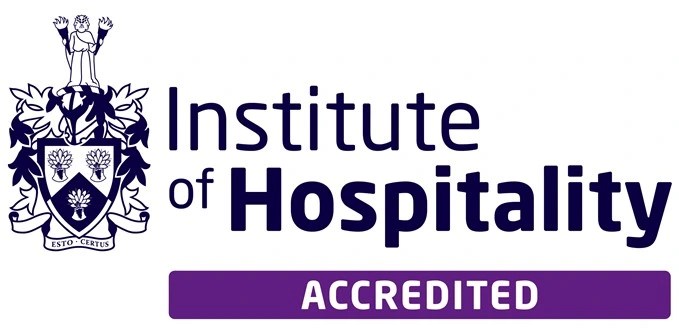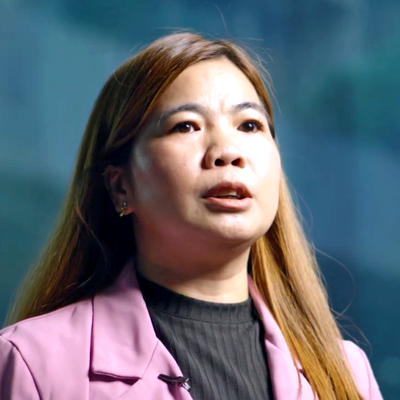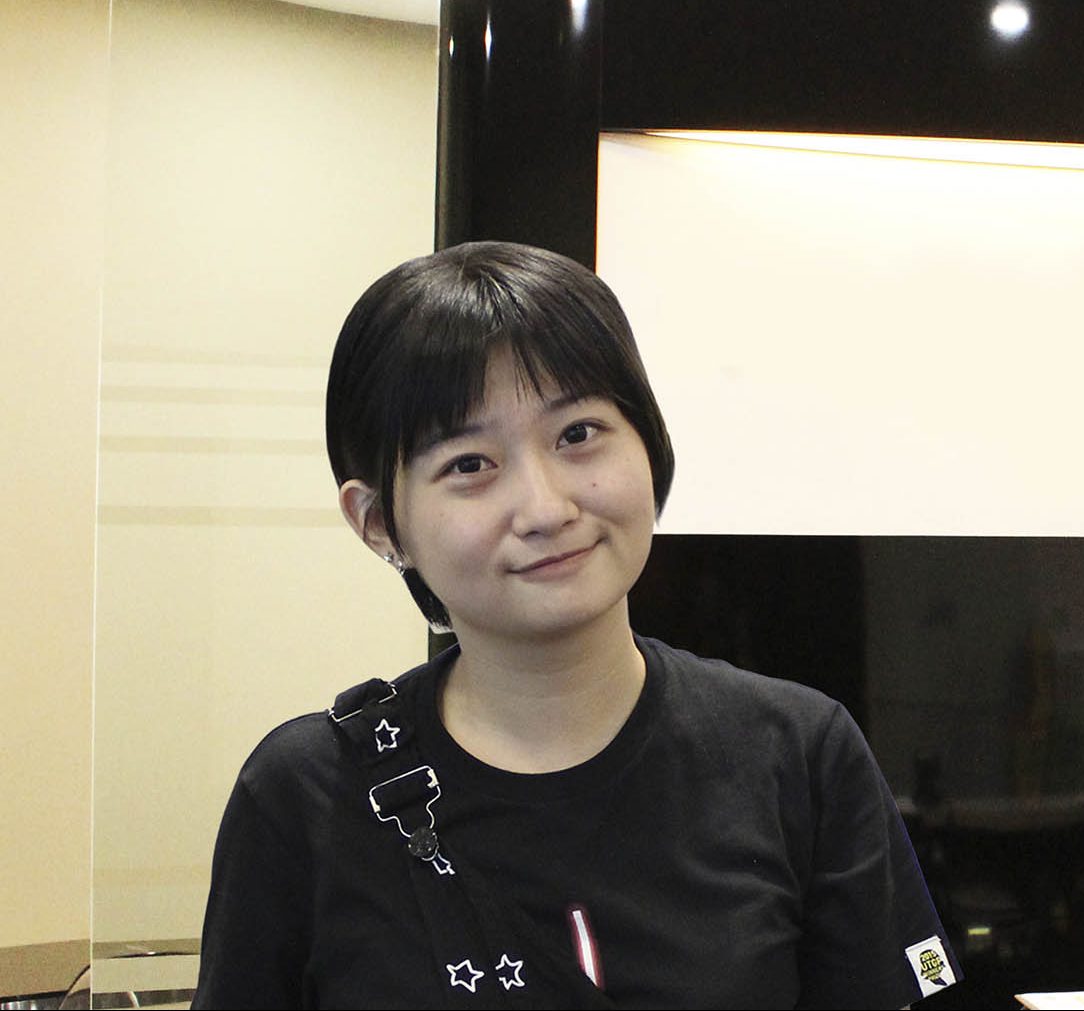
OVERVIEW
About This Programme
The Diploma in International Hospitality Management is developed by London School of Business and Finance (LSBF) as a first-year course towards a progression route for students aiming for a higher qualification in the field of hospitality management.
Accredited by the Institute of Hospitality
8 month | fulltime
fast track degree
42% of 2024 cohort scored distinction
Guided career sessions
MODULES
Designed to explore beyond subject knowledge
By the end of the programme, graduates will be able to identify and understand the techniques and theory implied in the hospitality environment.
Marketing in Hospitality and Tourism Management
This module will provide the learners with a wide understanding of the role of marketing and its application in the hospitality and tourism industries. It also enables students to understand how marketing activities help organisations to achieve goals and objectives and also maximise revenue and profit in the long run.
Organizational Behaviour in Hospitality Industry
This is an introduction to the basic concepts and topics in organisational behaviour (OB). It focuses on OB at three levels: individual, interpersonal, and collective. Students will learn the individual level, covering decision-making, motivation, and personality and then turn to the interpersonal level, covering power, influence, and negotiations. Finally, the course will move up to the collective level, covering groups and managing change.
Food Sanitation, Safety and Health
This module makes an important contribution to the supervisory aspects of food hygiene and safety. Supervisors with food safety and health and safety responsibilities need to ensure that all staff operates in a safe, hygienic and efficient manner. The overall aims of this module are to ensure students are familiar with key aspects of current legislation, good practice and health, safety and food safety issues.
Housekeeping
The aim of Housekeeping module is to provide students with an overview of the range of functions within the facilities department of hotels.
Introduction to Hospitality and Tourism
The aim of this module is to provide students with an understanding of the nature of hospitality and hospitality products from both local and international perspectives. It will ensure students acquire a holistic understanding of the hospitality, including the travel and hospitality industry, including the impacts of hospitality on destination economies, communities and fragile environments. Students will be expected to take a critical perspective on the effects of hospitality on their own country, and how hospitality can have a strategic developmental function.
Front office operations
This module introduces students to the systems and procedures required for Front Desk Office Operations. It emphasizes the importance of high standards in personal qualities and the provision of customer service. Students will develop knowledge and skills in reception procedures as well as understanding the key legislation that relates to reception procedures. They will also evaluate the suitability of different procedures for a range of hotel outlets.
Customer Service
This module give the students a better understanding of what is customer service and how it can provide quality product or service that satisfies the needs/wants of a customer. It also emphasises the effective communication skills in customer relations and services, and learn how to deal with various customer- related situations, which is also an integral part of tourism and hospitality studies.
Food and bevarage operations
The aim of Food and Beverage Operations module is to provide students with an understanding of the operational and supervisory aspects of running a food and beverage operations for an international clientele in a range of establishments to encourage an appreciation of the origins of such systems and to understand the various factors involved in meeting customer needs. Students will gain an understanding of food and wine and its service in a variety of styles of restaurant and establishments and they will have sufficient knowledge to produce a detailed plan for specified food and beverage operations.
Full programme structure & learning outcomes
Get details and learn about the advantages of learning with LSBF.
what to expect
Prepare for a Career in Hospitality
Programme Aims
The Diploma in International Hospitality Management awarded by LSBF aim to focus on the latest development in the hospitality industry. It will help the students to identify and understand the techniques and theory implied in the hospitality environment.
Students are given emphasis on developing professional hotel competencies such as effective communication skills, good customer service skills, leadership, team work and other relevant professionalism topics related to the industry.
A hospitality course is not entirely complete without the On-the-Job-Training (OJT). Therefore, our philosophy is to integrate classroom studies with supervised practical work experience directly related to academic and career goals.
Learning Outcomes
- To evaluate and understand the importance of the hospitality industry’s nature.
- To develop the professional skills that is acquired in the hospitality industry.
- To develop graduates with the necessary skills, knowledge to be immediately effective within the hospitality and tourism industry.
- To develop problem-solving skills, improve their ability to communicate and operate effectively as individuals within the hospitality and tourism organisation and as part of a team.
- To enable students to make managerial level decision making.
- To keep up to date on the industries technology advancement.
- To develop a critical appreciation of the roles of managers within the hospitality and tourism industry.
- To develop an understanding of the hospitality and tourism industry, including challenges and issues facing the industry.
- To motivate students to continue their higher education in the hospitality industry.
Each module is equivalent to 15 credit points for a total of 240 credit points plus Industrial attachment.
Skills you will acquire

programme structure
assessment method
Assessments
Students must take and successfully complete all eight modules and the Industrial Attachment to be awarded the LSBF Diploma in International Hospitality Management. Students must achieve an overall passing grade of 40%. If students fail to achieve an overall passing grade, they will be permitted to retake based on the directions given by the examination board.
Assessment for all module comprises of:
| Assessment Percentage | Assessment Component | Remarks |
| 40 % | Written Exam -MCQ | 1.5hrs exam in an exam hall / online |
| 30 % | Group Presentation | To do a research or project related to the module- question given by individual lecturers |
| 15 % | Online Test | Student can attempt it at their comfort provided they must meet deadline given. Test will be MCQ using the CANVAS LMS |
| 15 % | Attendance / Class Participation | Students will have to actively participate in class to show their understanding. Attendance will also be monitored. |
- To achieve a pass grade in this module, students must obtain an overall mark of at least 40%.
graduation requirements
Graduation Requirements
All students are required to pass all the modules in this course. Upon completion of this programme, students will be awarded ‘Diploma in International Hospitality Management’ and may progress to Advanced Diploma in Hospitality and Tourism Management.
Assessment Grading Table
| Grade | Percentage | |
| Distinction | D | 75-100% |
| Credit | C | 55-74% |
| Pass | P | 40-54% |
| Fail | F | 0-39% |
Exit Award
Where students are unable to complete the course, they may be given the option of an Exit Award if the meet the following criteria:
- Passed 4 modules
In such cases the student will be awarded the following: Certificate in International Hospitality Management
attendance criteria
STP holders: 90%
Non-STP holders: 75%
industrial attachment programme
Industrial Attachment is part of students’ educational development. This enables theoretical learning in the classroom to be applied to practical learning situations and encourages application of theory and knowledge in appropriate context. Industrial Attachment applies to all students. Students who are already working may produce a letter from their respective employers to show minimum six months work experience in the relevant industry (subject to Schools approval) for exemption to IA.
To be eligible for Industrial Attachment a student must have passed a minimum of 12 modules during their course of study.
Students who commence an Industrial Attachment and subsequently fail to complete this will not be awarded the Higher Diploma in International Hospitality Management but will be awarded Diploma in International Hospitality Management as an Exit award.
The Industrial Attachment is considered to be an integral part of the Higher Diploma. In the unlikely event that a student cannot be placed for IA LSBF will allow the student to complete a 5000 word Project in a maximum of 2 months.
Where students specifically request they may be granted the option of completing a Project rather than undertake the Industrial Attachment. The project (5000 words) topic is assigned by the School, students have a maximum of 2 months to complete the project after approval.Students must still meet the same eligibility requirements (12 passes) to take the Project.
On completion of Industrial Attachment/ Project students will be able to:
- Understand the importance and role of a hospitality industry during the actual work experience
- Understand how to overcome issues and problems faced by the industry on a day to day basis
- Knows about the standard practices and general laws of the industry and how they impact the business
- Demonstrate and establish interest in the activities and task given by applying the knowledge and skills learnt in school
- Understand how every individuals can take personal responsibility to reach the objective of the organisation
teacher student ratio
1 : 80
accreditation

This course is accredited by the Institute of Hospitality (IoH). IoH is a professional body for aspiring managers working and studying in the hospitality, leisure, and tourism industry.
STUDENT SUPPORT SERVICES
Why choose LSBF for your education
Study Materials
Students will receive study materials after they have made full payment for their programme. Replacement of study materials is subject to additional charge.
Student Portal
Students have access to the Student Portal. It is a useful site where the course information and learning materials are available for students’ easy reference.
Accessible Faculty
Students may contact their lecturers directly via email outside the lecture hours for any academic related queries.
Recorded Lectures
We will show compassion and care to all stakeholders as we believe the journey is as important as the outcome.
ELIGIBILITY
Who can apply
Local/international students Entry Requirements
Local students shall possess one of the following:
- At least two passes in GCE ‘A’ Level
- International Baccalaureate (24 points)
- Local Polytechnic Diploma in any field
International students shall possess one of the following:
- Completion of Year 12 High School Qualification or equivalent qualification from respective home countries
- Completed International Baccalaureate (24 points)
- Equivalent Local Polytechnic Diploma in any field in respective home countries
Minimum Language Entry Requirement:
Both local and international students MUST fulfil the minimum English language entry requirement of one of the following (except Mandarin programmes):
- Achieved grade C6 or better in English language in GCE O level;
- Pass in English Language in Year 10 High School qualification or equivalent;
- IELTS 5.5/TOEFL 550;
- Completed LSBF Preparatory Course in English Upper Intermediate Level;
Students with non-standard entry requirements (e.g. other PEI qualification, lack of equivalent Year 12 in home country, etc) will be assessed on a case by case basis subject to approval of the Academic Board.
Exemptions:
- Students, who have other Hospitality related qualifications, will be assessed on a case-by-case basis.
Minimum Age:
18 years and above
TUTION FEES
(Prices inclusive of GST)
SGD $6,409.20
(local students)
SGD $8,074.07
(international students)
FAQs
What career opportunities are available after this diploma?
Graduates can seek roles such as guest services executive, events coordinator, front office supervisor, or food & beverage executive—ideal for international hotel chains and event venues.
What can I study after this diploma?
You can take up an Advanced Diploma in Hospitality Management, followed by University of Greenwich’s Bachelor of Arts (Honours) in Hospitality Management (Top-up).
What if I’m not enjoying hospitality as I thought I would?
That’s okay. Your interpersonal and organisational skills can easily translate into careers in business, marketing, or customer service—areas you can explore through other diploma options
Is there financial support available for this programme?
Yes, LSBF’s diploma programmes are eligible for UTAP (Union Training Assistance Programme) funding. NTUC members can receive 50% course fee support, capped at S$500 per year. To apply, submit your UTAP application through the NTUC website within 6 months of completing your course. For more details, visit e2i.com.sg.
How do I get started?
Reach out to our expert education consultants at +65 6580 7700 or visit us at 80 Robinson Road, #01-00, Singapore 068898. We’re here to help you plan your next step.




















